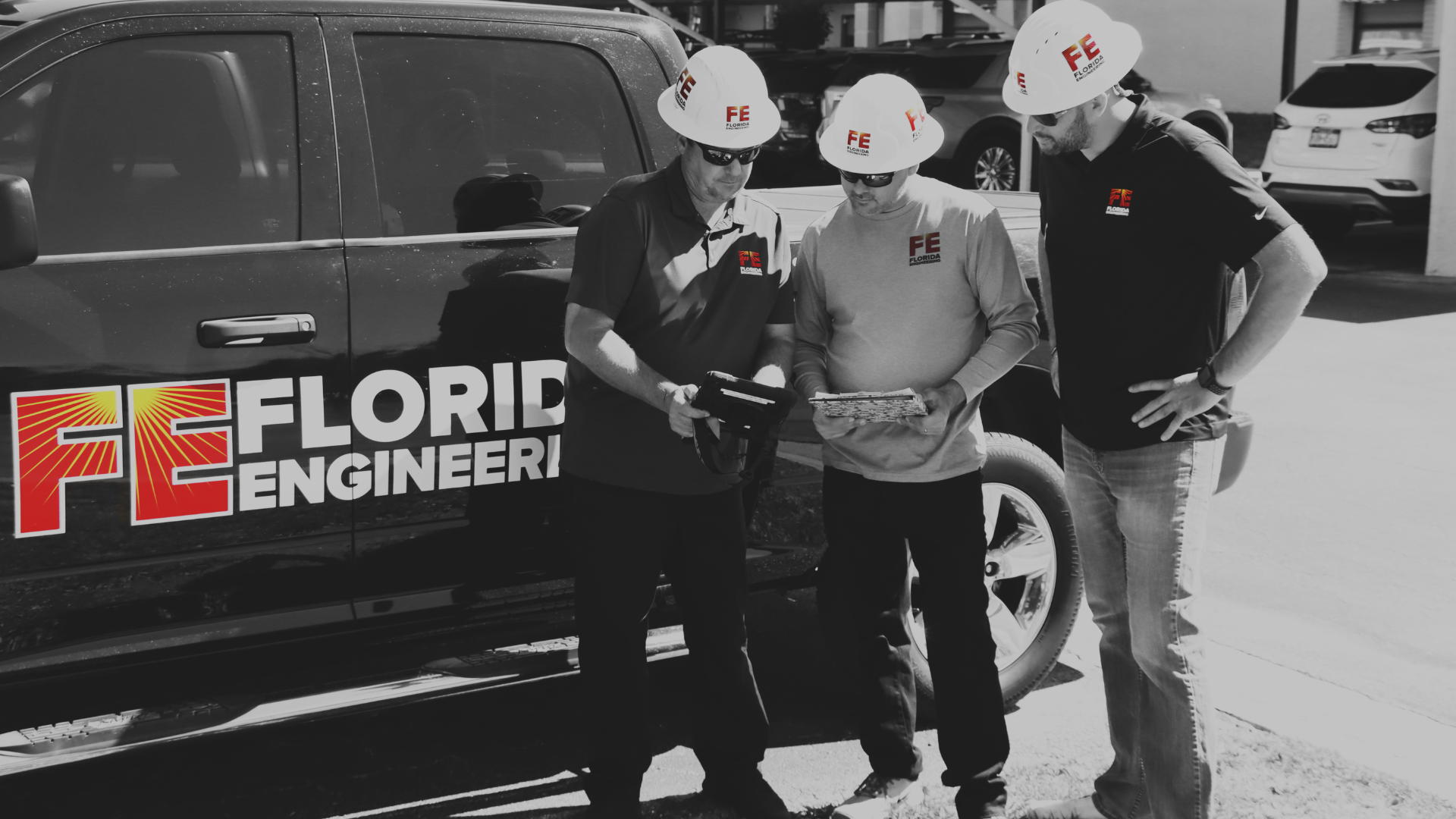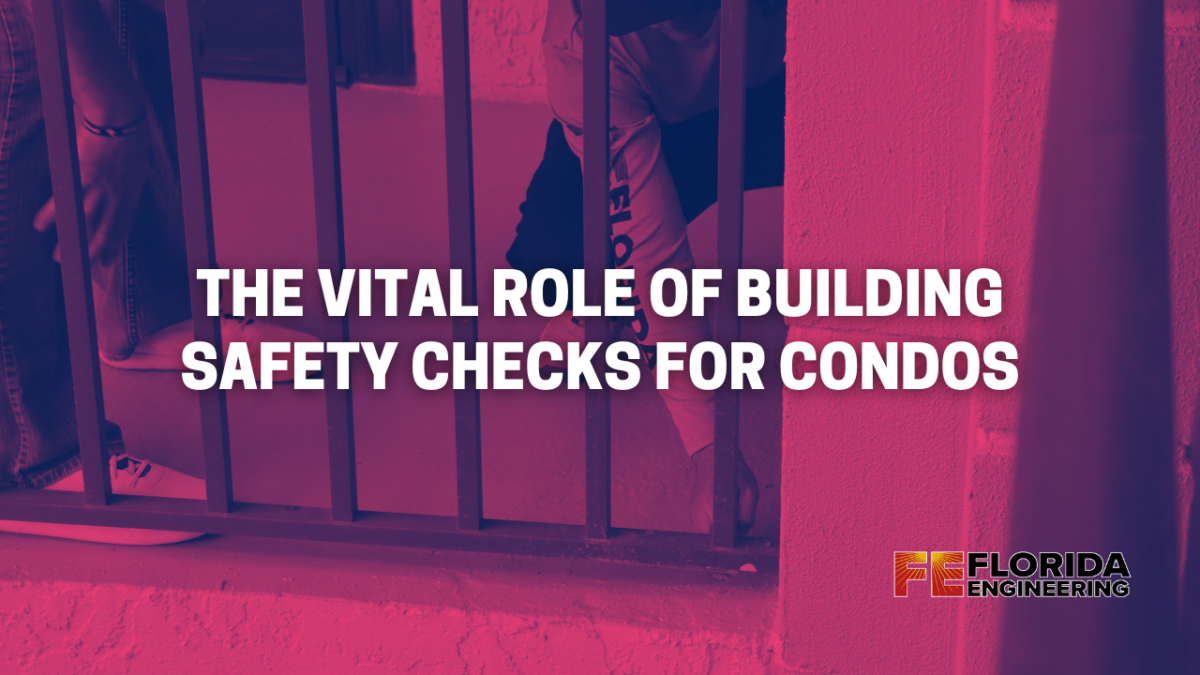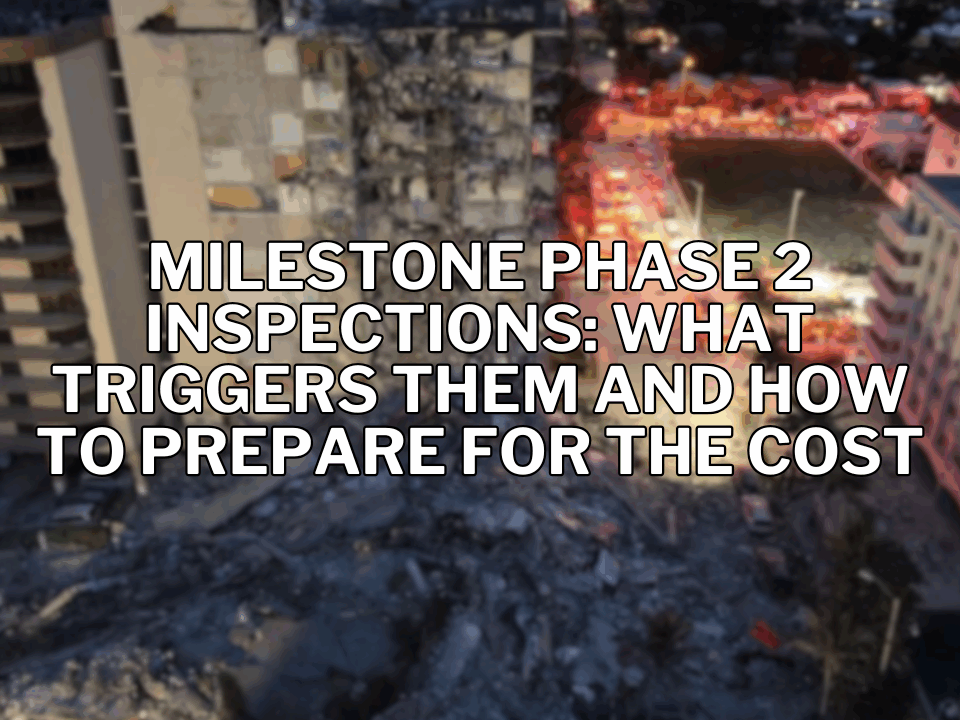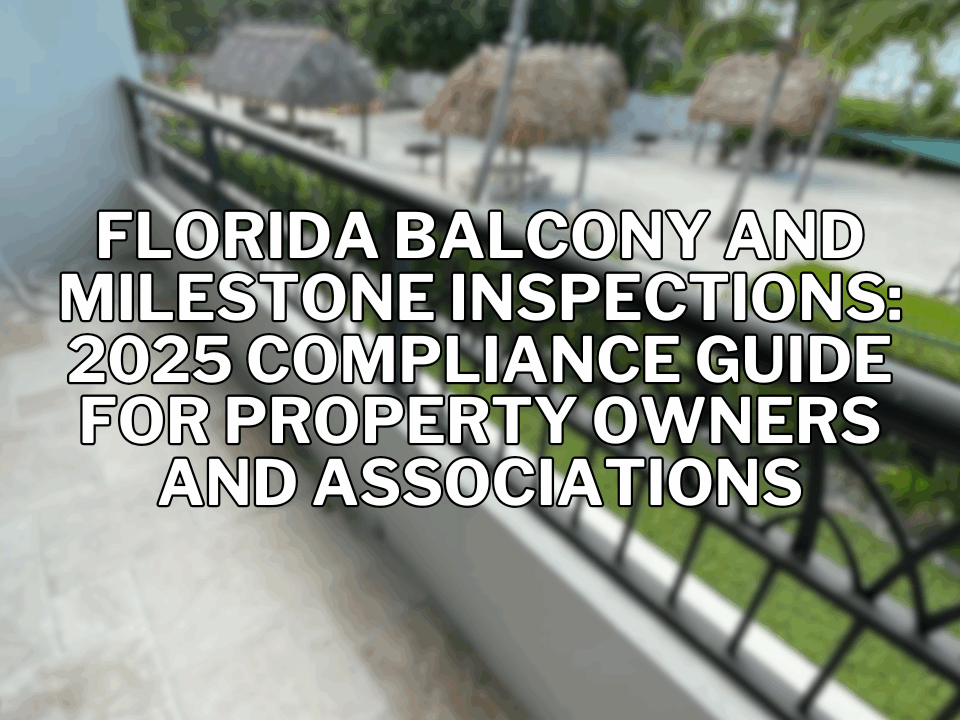The tragic collapse of a building in Florida has spotlighted the need for strict safety measures. As a result, Building Safety Checks for Condos have become essential.
The latest bill, CS for CS for SB 154 (2023 Legislature), introduces several significant changes to Florida Statute 553.899 which sets forth the requirements and procedures surrounding milestone inspections, structural integrity reserve studies, and related disclosures for condominium and cooperative associations in Florida. Here are some key updates and changes made since SB-4D:
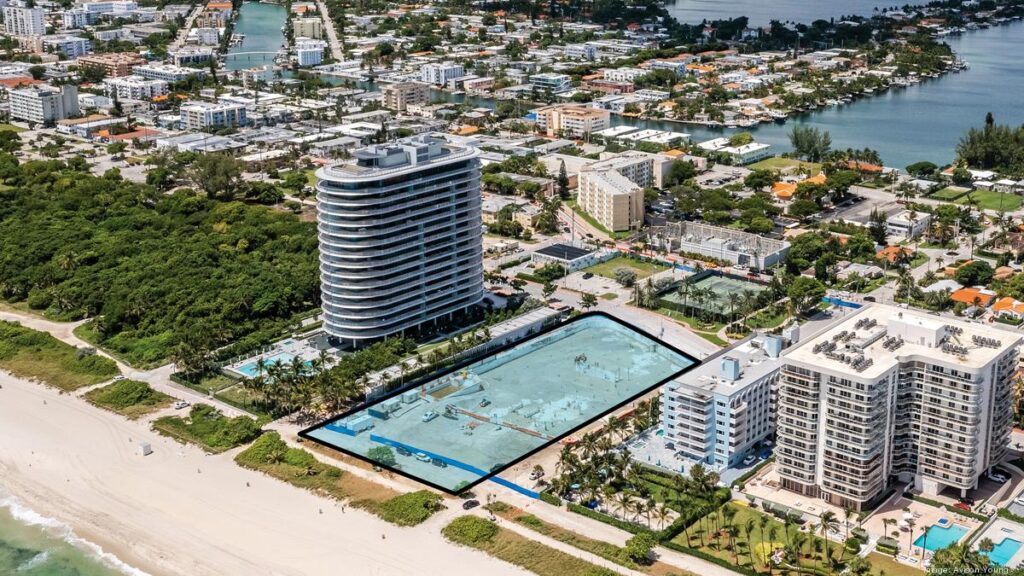
Milestone Inspections
- Revised Definitions and Requirements:
- The definition of “milestone inspection” has been expanded to include a team of professionals with an engineer in charge, emphasizing the inspection’s goal of ensuring life safety and the adequacy of a building’s structural components.
- Extended Deadlines for Initial Inspections:
- For buildings that reached 30 years of age before July 1, 2022, the initial milestone inspection must be performed before December 31, 2024. Buildings that reach 30 years between July 1, 2022, and December 31, 2024, must have their initial inspection before December 31, 2025.
- Local Enforcement Agencies’ Authority:
- Local enforcement agencies are authorized to extend deadlines for milestone inspections under certain conditions and to accept previous inspection reports if they substantially comply with current requirements.
- Financial Responsibilities:
- The financial responsibilities for milestone inspections have been clarified, emphasizing that the condominium or cooperative associations are responsible for costs of milestone inspections associated with the parts of the building they are obliged to maintain.
Structural Integrity Reserve Studies
- Mandatory Studies:
- A structural integrity reserve study must be completed for each building three stories or higher every 10 years, focusing on essential components like the roof, structure, foundation, fireproofing, and more.
- Comprehensive Reserve Studies:
- The reserve study must provide a detailed assessment, including the estimated remaining useful life and replacement costs of inspected items, along with a recommended annual reserve amount.
Disclosure and Documentation
- Enhanced Buyer Disclosure:
- Developers and sellers are now required to provide buyers with additional documentation, including the summary of the milestone inspection report, the latest structural integrity reserve study, and turnover inspection reports. This aims to ensure transparency and informed decision-making by potential buyers.
- Voidability Rights:
- Contracts that do not comply with the new disclosure requirements are voidable at the buyer’s option, reinforcing the buyer’s right to accurate and comprehensive information about the property.
These changes aim to enhance the safety, transparency, and financial responsibility regarding the maintenance and structural integrity of condominium and cooperative buildings in Florida, addressing gaps and lessons learned from past legislation such as SB-4D, which is now embodied in Florida Statute 553.899.
Building Safety Checks for Condos
The urgency surrounding building safety checks found its roots in a heart-wrenching event that reverberated across the nation: a catastrophic building collapse in Surfside, Florida. This disaster not only resulted in the tragic loss of lives but also cast a spotlight on the potential vulnerabilities lurking within aging condominium structures. In the aftermath, the Florida legislature took decisive action, introducing SB-154, which became Florida Statute 553.899, a law designed to prevent such tragedies from recurring. Florida Statute 553.899 mandates comprehensive safety inspections, a critical step forward in our collective commitment to ensuring the structural integrity and safety of condominiums across the state.
What Are Milestone Inspections?
Milestone inspections serve as the cornerstone of Florida Statute 553.899, acting much like periodic health check-ups for buildings. These inspections are meticulously designed to identify structural issues that could compromise the building’s safety. By catching problems early, these inspections provide a pathway to address them proactively, ensuring that our homes remain safe and secure environments for all residents. The essence of milestone inspections lies in their preventive approach, aiming to safeguard against potential disasters before they occur.
The Timing for Safety Checks
The timing for these pivotal safety checks is determined by two primary factors: the building’s age and its proximity to the coastline. For most condominiums, the first milestone inspection is required at the 30-year mark. However, for buildings where the corrosive effects of salt air can accelerate wear and tear, local enforcement authorities can advance this timeline is advanced to 25 years. This distinction acknowledges the unique challenges posed by the coastal environment, underscoring the importance of timely inspections in maintaining structural integrity.
What’s Inspected in the Phase 1 Inspection?
In the Phase 1 inspection of the milestone inspection process, as outlined by Florida Statute 553.899 and detailed in the Final Commission Report on Milestone Inspections, the focus is on a visual and qualitative assessment of the building’s structural integrity. The key areas inspected during this phase include, but are not necessarily limited to, the following:
- Load-Bearing Walls/Elements: The inspection looks at the walls or structures that support the building’s weight, checking for signs of stress, cracks, or deterioration.
- Primary Structural Members: These are the main supports of the building, including beams, columns, trusses, and girders. Inspectors assess their condition for any signs of damage or weakening.
- Primary Structural Systems: This encompasses the overall framework and construction that contribute to the building’s ability to stand and bear loads, looking at how these systems integrate and function together.
- Foundations: The inspection includes checking the foundation for any signs of settlement, shifting, cracking, or water intrusion that could undermine the building’s stability.
- Roofing: Though primarily concerned with structural aspects, the roof is inspected for conditions that might affect the building’s structural integrity, such as water pooling, leakage, or damage to the roofing structure.
- Exterior Walls and Cladding: The inspection assesses the condition of exterior walls and coverings for signs of deterioration, damage, or failure that could affect structural integrity.
- Windows and Doors: The framing and installation of windows and doors are inspected for structural soundness and integrity.
- Balconies and Railings: Balconies, decks, and their railings are checked for stability, secure attachments, and signs of wear or corrosion that might compromise safety.
- Staircases and Walkways: These are inspected for structural soundness, including support structures, railings, and the condition of walking surfaces.
- Overall Building Condition: This includes a general assessment of the building’s condition, looking for any visible signs of structural distress or deterioration not covered in specific categories above.
Qualifications for Conducting Inspections
The responsibility of conducting these crucial inspections falls to professionals who possess the necessary expertise to assess the building’s safety accurately. Specifically, licensed engineers are qualified to perform milestone inspections. This ensures that the inspections are thorough, reliable, and conducted in accordance with the highest professional standards. Looking ahead, there’s discussion about introducing more stringent qualifications for inspectors, especially for those conducting the more detailed follow-up inspections.
Improvements and Standardization Efforts
In response to the introduction of Florida Statute 553.899, efforts are underway to streamline and standardize the inspection process. A key aspect of this initiative is the development of a standard form for milestone inspections, which aims to simplify the reporting process and ensure consistency across inspections. This standardization is crucial for transparency and clarity, making it easier for condo owners and residents to understand the findings of the inspections and the recommended actions.
Compliance and Timelines
Condo associations must closely follow Florida Statute 553.899’s schedule for Building Safety Checks for Condos. These rules spell out when and how often inspections should occur, underlining the value of early safety measures. Buildings must undergo their first milestone inspection by December 31 of the year they turn 30 (or 25 if close to the coastline), with variations for buildings already past this age by July 1, 2022. Inspections will then occur every 10 years.
Who is Qualified to Perform the Milestone Inspection?
Under Florida Statute 553.899, the individuals qualified to perform the milestone inspections are specifically defined to ensure that the inspections are thorough and professionally conducted. The qualifications include:
Licensed Engineers:
- A licensed engineer authorized to practice in the state of Florida can perform both Phase 1 and Phase 2 of the milestone inspections. This ensures that the individuals conducting these inspections have the necessary education, experience, and professional judgment to assess the structural integrity of buildings accurately.
Additionally, while the current law specifies licensed engineers as qualified professionals for these inspections, there are suggestions within the industry and among professionals that further qualifications or certifications might be beneficial, especially for more complex or detailed Phase 2 inspections. These suggestions include:
- Special inspector certifications or additional structural engineering qualifications for those performing the more detailed Phase 2 inspections.
- Experience requirements in designing structural components of buildings and inspecting structural components of existing buildings, to ensure that inspectors not only have the license but also the practical experience relevant to conducting thorough and informed inspections.
The Role of the Florida Building Commission
Navigating the complexities of Florida Statute 553.899 and its implications for condo safety checks falls under the guiding hand of the Florida Building Commission. This body not only plays a pivotal role in outlining the procedures for these inspections but also in ensuring that the standards set are both rigorous and achievable. The Commission’s recommendations are instrumental in guiding condo associations and property managers through the process, ensuring that every building meets the safety benchmarks that protect our homes and our communities.
Interpreting Inspection Results
The outcome of a milestone inspection is documented in a detailed report, outlining the current health of the building and any necessary recommendations for maintenance or repair. These reports are more than just a bureaucratic requirement; they are a roadmap to ensuring the long-term safety and viability of condo buildings. Understanding the nuances of these reports is crucial for condo boards and residents alike, as they contain the insights needed to make informed decisions about future maintenance and investment in building infrastructure.
Actionable Steps Post-Inspection
Once the inspection report is in hand, the real work begins. This report will categorize repairs by urgency, offering a clear guide on what needs fixing immediately and what can wait. This prioritization helps condo associations allocate resources effectively, ensuring that the most critical issues are addressed swiftly to maintain safety and compliance. It’s a structured approach to building maintenance that not only keeps residents safe but also contributes to the building’s longevity and value.
The Impact on Condo Owners and Residents
Building Safety Checks for Condos offer more than compliance. They guarantee the safety of every resident. This initiative strengthens community trust and assures every one of their home’s integrities.
Looking Ahead: The Future of Building Safety
As we move forward, it’s clear that the landscape of building safety and maintenance is evolving. With laws like Florida Statute 553.899 setting new standards, we can expect further enhancements to safety protocols and inspection processes. This proactive stance on building safety is a model that other states and countries might look to emulate, underscoring the importance of vigilance, maintenance, and community involvement in preserving the sanctity of our homes.
FAQ: Understanding Florida Statute 553.899 for Condo Owners
1. What is the purpose of SB-154 regarding condominium and cooperative buildings? Florida Statute 553.899 aims to improve the safety, structural integrity, and financial management of condominium and cooperative buildings. It introduces stricter inspection schedules, qualifications for inspectors, and enhanced transparency in financial planning to prevent tragedies like the Surfside collapse.
2. Who must perform milestone inspections, and what qualifications do they need? Milestone inspections must be carried out by licensed engineers, or other certified professionals deemed qualified under the new law. This ensures that inspections are thorough and adhere to safety standards.
3. What is the timeline for the initial milestone inspections under Florida Statute 553.899? Buildings must undergo their first milestone inspection by December 31 of the year they turn 30 (or 25 if close to the coastline), with variations for buildings already past this age by July 1, 2022. Inspections will then occur every 10 years.
4. Can local enforcement agencies influence milestone inspection deadlines? Yes, local agencies may extend deadlines under certain conditions, such as contractual obligations with inspectors, and they can accept prior inspections if they substantially comply with the new requirements.
5. What are the financial responsibilities of condominium and cooperative associations for milestone inspections? Associations are responsible for the costs related to the building parts they maintain. This includes arranging and funding milestone inspections for these areas.
6. What does a structural integrity reserve study involve, and how often must it be performed? A structural integrity reserve study assesses the condition, life expectancy, and replacement costs of major components (e.g., roof, foundation). It must be done every 10 years and used to guide the association’s reserve fund planning.
7. How do Florida Statute 553.899’s requirements affect the sale of condominium units? Sellers and developers must now provide buyers with current inspection reports and structural integrity reserve studies (or declare their absence) to ensure buyers are fully informed. Contracts missing these disclosures are voidable by the buyer.
8. What happens if the required disclosures are not provided to buyers? Buyers have the right to void the contract if they don’t receive the required documents, emphasizing the importance of transparency and buyer protection in real estate transactions.
9. How does Florida Statute 553.899 address the use of reserve funds? The law specifies that reserve funds can only be used for their intended purposes unless an alternative use is approved by a majority vote of the total voting interests, protecting these funds for future needs.
10. What are the implications of Florida Statute 553.899 for existing condominium associations and future development projects? Existing associations must adapt to stricter inspection and financial planning requirements, potentially leading to higher maintenance costs. Future development projects will need to incorporate these requirements from the start, ensuring new buildings are safer and better maintained.
[This above text is for information purposes only and does not constitute engineering or legal advice. Please consult a professional engineer and licensed attorney for any specific answers to your questions about milestone inspections and the legal obligations milestone inspections entail.]

